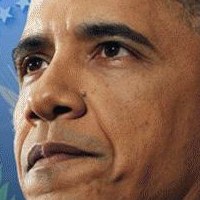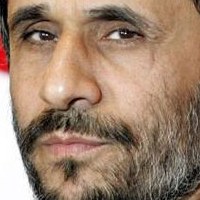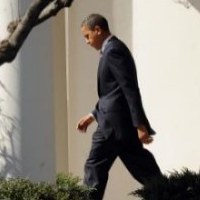![]()
Wed, Dec 29, 2010 | WikiLeaks
WikiLeaks: Iraqi PM Claims U.S. Oil Company in Contact with Iran
The US energy firm Chevron negotiated with Tehran about developing an Iraq-Iran cross-border oilfield in spite of tight US sanctions, according to the Iraqi prime minister in leaked diplomatic cables.
Nouri al-Maliki’s claim, reported in the cables, that Chevron was in discussions with the Iranian government will raise eyebrows in Europe and other parts of the world where international companies have come under significant pressure from Washington to end investments and other financial dealings with Tehran.
Chevron declined to either confirm or deny that it had been in contact with Iran, and confined its reaction to a statement saying it had not done, and would not do, anything in violation of US law.
Read related article “Chevron discussed oil project with Tehran, claims Iraqi PM” in the Guardian here.
Source: WikiLeaks
Monday, 23 March 2009, 09:27
S E C R E T SECTION 01 OF 03 BAGHDAD 000791
SIPDIS
EO 12958 DECL: 03/20/2029
TAGS PGOV, PREL, MOPS, MARR, PTER, IZ, EPET, EFIN
SUBJECT: CDA, CG AND PM DISCUSS EVOLVING SECURITY CONCERNS,
THE BUDGET, OIL CONTRACTS; CDA DELIVERS DEMARCHE ON CAMP ASHRAF
REF: A. SECSTATE 26167 B. BAGHDAD 00442
Classified By: Charge d’ Affairs Patricia Butenis for reasons 1.4 (b) a nd (d)1. (S) Summary: In a meeting with Iraqi Prime Minister Nuri al-Maliki on March 19, Charge d’ Affaires (CDA) Butenis and Commanding General MNC-I Lieutenant General (LTG) Austin discussed evolving security concerns, politics surrounding the budget, efforts to capture former Sons of Iraq (SOI) leader Adel Mashadani, and asked about the way ahead for reforms to improve management of hydrocarbons; additionally, the CDA delivered a demarche on Camp Ashraf (REF A) to which the PM acknowledged the sensitivity of the issue but emphasized the domestic Iraqi pressure as well as specific threats from Iran that he faces on the Mujahedin e-Khalq (MEK) residents of Camp Ashraf. He said, however, that they would not be harmed, that he would abide by the humanitarian assurances provided to the USG, and that he would not forcibly remove anyone to Iran – even those suspected of crimes – but that they could not remain in Iraq. LTG Austin noted vast improvements in the security environment over the last year, commenting that the GOI’s operation in Basra last March was a pivotal moment in Iraq’s history. The PM remarked that “maintaining victory is much more difficult than achieving victory,” noting that Iraqi security forces must adapt to new threats posed by smaller clandestine terrorists cells and emphasized that intelligence would be key to this end. In response to the CDA’s query about payments due to General Electric for power generation contracts, the PM said that the contracts would be paid even if it had to come out of their own salaries. LTG Austin expressed his gratitude to the PM for resolving budget problems related to payment of the SOI, to which the PM responded that the COR is playing political games with the budget. With regard to hydrocarbons, the PM asked for the U.S. position on direct contracts with U.S. firms and on U.S. firms developing cross border fields on the Iran border. End Summary.
2. (S) LTG Austin informed the PM that General Odierno was in Jordan and asked about the PM’s recent trip to Australia. The PM said that the trip was productive, but noted that it was very long. The position of the Australian government is a very good one, he reiterated.
—————————-
An Evolving Security Threat
—————————-
3. (S) LTG Austin reminded the PM that this time last year they were in Basra, adding that “so much has changed since then.” Basra was a defining point in Iraq’s history, he told the PM. The PM agreed, commenting that “maintaining victory is much more difficult than achieving victory.” The PM said that “they (insurgents/terrorists) are still out there,” but they have lost control of the cities and have become “gangs” that move from one area to the next. “We need to build our intelligence capability to track these clandestine gangs.” The time of armed confrontations (battles) is over, he said. “We have to adjust our forces to counter this new threat and intelligence will play a key role in this,” al-Maliki warned. He questioned whether or not existing plans or strategies, e.g., focusing on checkpoints, are still applicable. “We have to evolve our forces to compensate for the changing security environment and emerging threats,” he said.
4. (S) LTG Austin said that the PM and General Odierno are of Q4. (S) LTG Austin said that the PM and General Odierno are of a like mind on this matter. He remarked that the Iraqi Police (IP) would need to assume a greater responsibility for internal security, while the Iraq Army (IA) would focus on external threats. The PM quickly responded that the IA plays a critical role in ongoing security operations and would continue to do so, particularly in light of the drawdown of U.S. forces. “There is no substitute for the IA in a security role,” he said. “I don’t want to risk withdrawing the IA, particularly in light of the drawdown of U.S. forces,” he reiterated. Perhaps, he said, this will happen after we ensure that the insurgents and al-Qaida Iraq (AQI) will not come back.
5. (S) The PM said that “we must continue to develop the police.” They need weapons and equipment and additional training in combating terrorism. There have also been some problems within the IP, noting the recent arrest of a “gang” within the passport office that was taking bribes for counterfeiting passports (photo-substitution) of suspected former Ba’ath Party members. He said that the police taking bribes is a serious problem that undermines security in Iraq.
BAGHDAD 00000791 002 OF 003
“Terrorists can use our passports to move around freely with absolute anonymity.” LTG Austin responded that the IP is twice as large as the IA and that it would take some more time to develop, acknowledging that the IA is far more capable at present. PM al-Maliki responded that the IP would eventually assume responsibility for internal security, allowing the IA to focus on external threats.
——————————–
Politics and the Budget Process
——————————–
6. (S) LTG Austin thanked the PM for his help with the SOI. “I thought that there would be more problems with them getting paid, but it now seems to have been resolved,” LTG Austin remarked. The PM said that the COR may have been playing political games with the budget and that he had taken money from the MOI’s budget to pay the salaries of the SOI. The COR is trying to sabotage our efforts, he said. The CDA took this opportunity to ask about the GOI’s plan to fund this year’s payments to GE on the contract signed last year for electrical generators. The PM assured the CDA that the payments would be made, even if the money had to come from their own salaries. The PM said that “we can not sacrifice electricity (referring to the GE contract), or security, of which the SOI are an important part, even if we have to cut the budget in other areas.”
———————————
Former SOI Leader Adel Mashadani
———————————
7. (S) Updating the PM on the status of former SOI leader Adel Mashadani (REF B), XXXXXXXXXXXX. The PM responded that he is running out of patience on this matter and that it had already taken too long. He said that Mashadani’s presence is a direct challenge to the GOI. He said that “we must develop a plan that minimizes collateral damage but has some acceptable risk,” comparing the situation to Basra. This is a big problem, the PM said. “I will have our special forces and intelligence units work out a strategy and present it to you, we don’t want to wait too long,” al-Maliki advised. LTG Austin said that they are already working with Iraqi Special Forces units in the area, noting they had recently collaborated to arrest two suspected AQI operatives in Fadhel. “We will work with your forces to develop a plan, but we want to be cautious,” LTG Austin said.
8. (S) The PM was insistent that we not wait too long, fearing that Mashadani might escape or that the GOI would be perceived as being complicit in Mashadani’s criminal activity, or worse, that the GOI is incapable of acting against him. The PM said that we have gone after tougher and stronger targets than him, adding that we should not fear him. LTG Austin reiterated that he only wants to minimize casualties but that he understands the PM’s concerns.
9. (S) Turning to the CDA, the PM asked about the arrival of Ambassador Hill. The CDA said that Ambassador Hill will have confirmation hearings in the Senate on March 25 and that, hopefully, he would arrive in Iraq sometime in April. The Qhopefully, he would arrive in Iraq sometime in April. The PM asked the CDA if she foresaw any problems. She responded that some Senators had expressed concern with Ambassador Hill’s lack of experience in the Middle East and over his negotiations with North Korea. She said that Ambassador Hill had already met with Senators McCain and Graham to address such concerns. She expressed optimism that he would be confirmed by the Senate, noting that he was one of the Department’s most accomplished diplomats. The PM said that he had discussed Ambassador Hill with President Obama when they last spoke and that President Obama said that Ambassador Hill “had his complete confidence” and that he is “the right man for the job.” The PM told the CDA that “we welcome him to Iraq.”
——————————————-
Oil Reform Proposals and Direct Contracts
——————————————-
10. (S) The CDA asked the PM about the status of the reform proposals from the oil symposium hosted by Deputy Prime Minister Barham Saleh in early March. She said that it was a
BAGHDAD 00000791 003 OF 003
good sign that the government had formalized the symposium’s conclusions into recommendations for government decision, and asked if the package would need only COM agreement or would also have to go to the COR for approval. The PM said no, he does not intend for the reform proposals to go to the COR and that he would do everything to avoid this, commenting that the COR would “take us into a political maze,” which was completely unnecessary.
11. (S) Sadiq Rikabi, political advisor to the PM, asked the PM to inquire about the USG’s position on direct contracts with international oil companies. The PM noted that he is in favor of direct contracts, in order to avoid the delays inherent in a bidding process. The PM said he is currently in negotiations with Chevron to develop various oil fields, to include a cross-border oil field with Iran (NFI). The PM claimed that Chevron had told him that it had already raised the issue of a cross-border development with Tehran as well. (Note: We have no independent confirmation of this; end note.) The PM asked the CDA about the political feasibility of such a deal involving a U.S. firm working both sides of a cross-border field, given current USG policies toward Iran. The CDA noted that U.S. law on sanctions would apply, but added that the Administration was reviewing its policies on Iran. PM al-Maliki said that he prefers to go with Chevron on the deal; however, he remarked that if U.S. rules prevent Chevron from doing this project, he would approach a non-American firm.
————————————–
PM’s Response to Demarche on the MEK
————————————–
12. (S) The CDA informed the PM that she had been directed by Washington to deliver a demarche on Camp Ashraf (REF A). The CDA delivered the points in the demarche, without interruption by the PM. The PM then expressed some frustration and questioned why the GOI had to act so responsibly towards a organization determined to be a terrorist group by both Iraq and the U.S.. He noted that this created daily problems within the GOI. He asked the CDA to try to understand the very difficult situation that the GOI was in. “It is not because of Iran,” he said. “We have great internal pressures to resolve this matter.” The PM noted that he had been around for the last 20 years and knows very well who the MEK are and what they have done. The PM complained “they (MEK) are at the al-Rasheed hotel, meeting with COR members and conspiring against the GOI.” He said that Iran had asked how the GOI could support cross border military actions by Turkey against the PKK, but not allow Iran to take similar action against the MEK at Camp Ashraf. He added that he is very concerned about a message delivered by Iran that it would attack the MEK at Camp Ashraf if no action was taken soon. Additionally, al-Maliki asked, given the drawdown of U.S. bases, whether the U.S. could help the GOI to use one of the transferred facilities – far from the Iranian border – as a new location for the MEK. LTG Austin told the PM that he will look into this possibility.
13. (S) The PM reassured the CDA that he would not take any action against the MEK. He said that he would abide by the humanitarian assurances provide by the GOI to the USG. He told the CDA that the GOI would not remove any of the Camp Ashraf residents to any country, including Iran, where they would be harmed. “We will not forcibly return any of them to Qwould be harmed. “We will not forcibly return any of them to Iran, even those suspected of crimes,” al-Maliki stated. But, “they must understand that Iraq is not their home.” The CDA noted that the European Union had delisted the MEK as a foreign terrorist organization and that we were working with other countries to encourage them to relocate the MEK. PM al-Maliki said that he met with ICRC President Jacob Kellenberger on March 18 who had also raised this issue with him and that they had discussed this issue at length. BUTENIS



 RSS
RSS












#WikiLeaks: #Iraqi PM Claims #U.S. #Oil Company in Contact With #Iran | http://j.mp/dSK9DL
RT @CrethiPlethi: #WikiLeaks: #Iraqi PM Claims #U.S. #Oil Company in Contact With #Iran | http://j.mp/dSK9DL